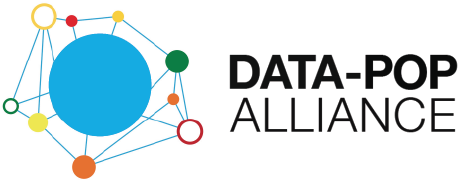MALI
Information last updated: 7 May, 2020
- Population: 19 M
- Population +65 yo: 3%
- GDP Per Capita: 2,344 USD
- Informal employment: 89% (2018)
- First registered case: 25 March
- Hospital beds: 3.40 (per 1000 people)
Sources: TheWorld Bank and WHO (Population over 65 years old, Informal employment, GDP-PPP, Hospital beds).
Status
- No confinement, but a curfew from 9 p.m. to 5 a.m. is in place since March 26, 2020.
Response set up and capacity
The Malian response is based on three levels. At the national level the operational response is organized by a coordination unit under the authority of the Ministry of Health and Social Affairs, which does daily briefings on prevention and response actions against coronavirus disease. The recently created National Defense Council chaired by the President, is in charge of taking measures to fight the disease at the national level. At the regional level, epidemic and disaster committees are responsible for the coordination of prevention and response actions. And at the West African level, regular meetings with the West African Health Organization are held to share information
In 2010, the number of beds stood at 0.1 per 1000 inhabitants according to the World Bank. According to this organization, “the performance of health systems in Mali is weak. It suffers from chronic insufficiency of financial and human resources, limited institutional capacity and infrastructure, weak health information systems, absence of community participation, and lack of transparency and accountability. Public sector spending on health is generally low. Mali does not meet the Abuja target of ensuring 15 percent of Gross Government Expenditure (GGE) is allocated to health. Mali’s Joint External Evaluation (JEE) as well as country-led self-assessments reveal great weaknesses in health systems in terms of infectious disease and antimicrobial resistance (AMR) surveillance, epidemic preparedness and response”.
Stakeholder Mapping
Entities / Organizations
• Presidency of the Republic
• Ministry of Health and Social Affairs
• Superior Council of National Defense
Additional actors
• World Bank
• World Health Organization
• West African Health Organization
• MINUSMA
• United Nations agencies
Mitigating factors - What is being done?
- March 12: Communique of the extraordinary session of the Supreme Council of National Defense that announces that all travelers arriving in Mali will have a temperature test. For those with minor symptoms self-isolation for 14 days is mandated, with daily follow-up by a medical team, for those with major symptoms, transportation to an isolation site for testing. It also mandates that meetings must be reduced to a minimum and that the participation of Malian executives in large meetings in heavily affected countries are forbidden. – Major events (conferences, festivals, etc). in the country are forbidden until further notice. Last, the communiqué puts forth a plan to strengthen individual and collective hygiene measures (hand washing with soap, use of hydro-alcoholic gel in front of all public services and places of worship).
- March 17: Superior Council of National Defense suspends, until further notice, all commercial flights from the affected countries, except for cargo flights. It also announces the closure of schools for three weeks and suspends, until further notice, all public meetings (including social, sports and political ones) of more than fifty people. Nightclubs and bars are also closed.
- March 25: Presidential address announces that a curfew is decreed from 9 p.m. to 5 a.m. until further notice, starting from Thursday, March 26, 2020 at midnight and the state of health emergency is declared but the legislative elections of March 29th are not cancelled.
- April 11: Presidential address on new measures to fight the epidemic:
- With regards to health measures, the government launches the “one Malian, one mask” programme, which includes the domestic production of 20 million masks.
- For economic and social measures, the government sets up a special fund of 100 billion CFA for the most vulnerable families, reducing for 3 months certain taxes, notably on essential goods. It also subsidizes the electricity and water bills for most vulnerable families and exempts from Value Added Tax bills for these public services. In addition, they distribute 56,000 tons of cereals and 16,000 tons of feed to affected vulnerable populations. On a more symbolic note, The President of the Republic forgoes three months’ salary, the Prime Minister two months’ salary, and members of the government one month’s salary.
Risks, vulnerabilities, obstacles
Despite the emergence of the first cases in the country, the government simply decreed a curfew from 5pm to 5am and no strict confinement. In addition, the legislative elections of 29 March and 19 April 2020 were maintained. This could create a risk of spreading the epidemic.
In addition, there are security problems in the north of the country, where soldiers of the national army are fighting against jihadist militias and Tuareg groups. The mobilization of resources in this war reduces the financial capacity of the government in the fight against Covid-19.
As in most countries in the zone, the importance of the formal sector and the high poverty rate reduces the effectiveness of economic and social distancing measures. People dependent on the informal sector must continue their professional activities because it will be difficult for them to benefit from economic measures.
Potential actions and demands
To enable the country to recover quickly, The World Bank announced on the 10th of May a plan of 25.5 million dollars of IDA (International Development Association) composed of 50% of grants and 50% of credits.
The United Nations announced a total of $6 million in funding to help combat Covid-19 in Mali.
First of all, the MINUSMA (United Nations Mission in Mali) signed three protocols with the Malian Ministry of Health and Social Affairs on Monday 6 April for a total amount of 2,732,043 US dollars, or nearly 1,650,000,000 CFA francs. In addition, the agencies and programmes of the United Nations system will provide support in various sectors for a total amount of US$3,449,982 or nearly 2,040,000,000 CFA francs.
Key resources
Contributor(s): Eloi Mauratille.


